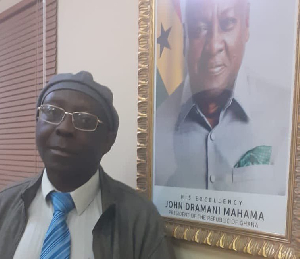Chief Executive of the Ghana Grid Company, Jonathan Amoako-Baah is predicting a year of growth and dominance in the sub-region for the power transmitter.
In a New Year message to staff, the Chief Executive implored employees to rally together and embrace 2020 with enthusiasm as they seek to maintain stability and efficiency on the grid across the sub-region.
He said GRIDCo will seek to drive innovation and creativity in how it operates in order to establish a world class reputation amongst its peers.
Despite some challenges in 2019, GRIDCo was able to ensure consistency and stability in power transmission in Ghana and across the sub-region.
It was also able to expand its services to neighbouring countries in West Africa whiles ensuring reliability for Ghanaians. The company received two major awards in 2019 including the Power Service Provider of the Year at the Africa Energy Awards in Cape Town.
Challenges emanating from unpaid debt obligations from its bulk customers led to some intermittent unrest amongst staff towards the end of the year. However, this was eventually resolved following fruitful consultative meetings between Management and the staff groups.
The company has also put measures in place to address its current financial situation including strategies to recoup monies from indebted bulk clients within reasonable time.
“I am confident that we are on the right path. Management would want to assure staff that, even with the challenges experienced last year, we will continue to implement measures that will make us competitive, grow new businesses and enhance our use of technology,” Jonathan Amoako-Baah said.
GRIDCo recently signed a US$250m deal with Siemens, as part of the German G20 Compact for Africa initiative. The partnership is expected to enhance the company’s operations, including the export of excess capacity to neighbouring countries and training young and talented engineers for the future.
Business News of Tuesday, 21 January 2020
Source: Ghana Grid Company













